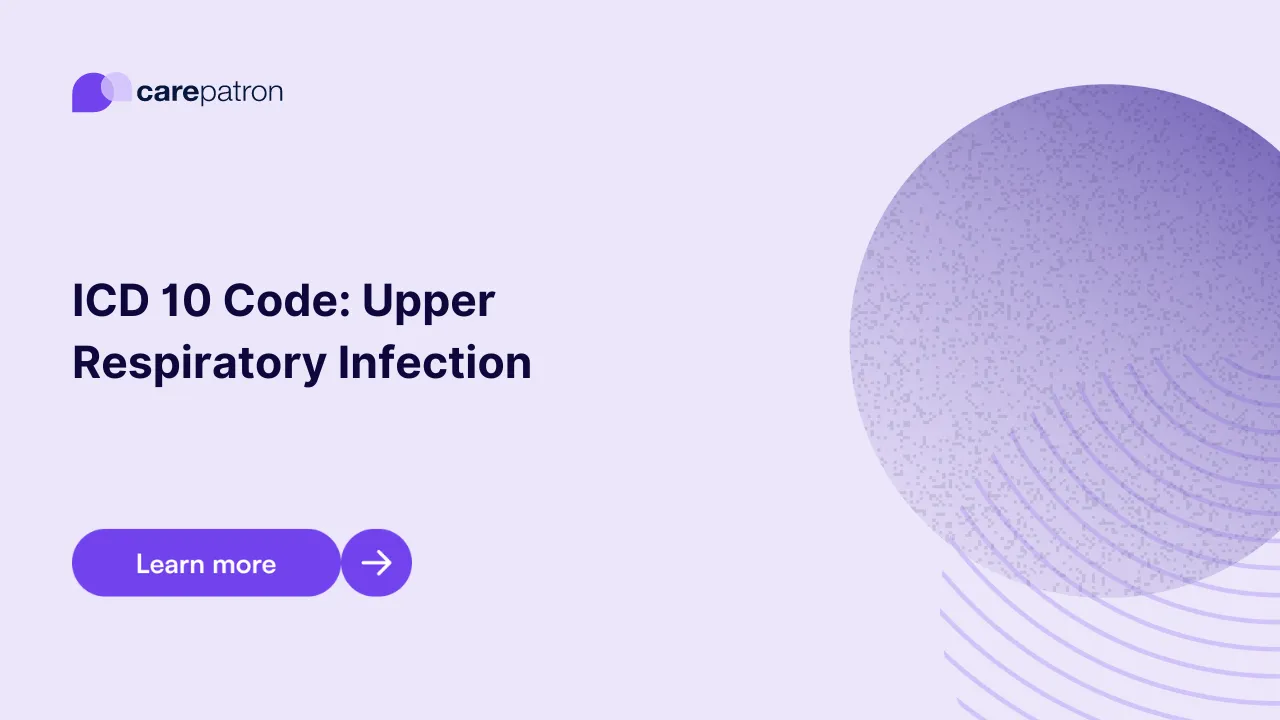Upper Respiratory Infection ICD-10-CM Codes
Explore the 2023 ICD codes for Upper Respiratory Infection. Grasp the codes, billability, and clinical relevance for this common ailment.

What ICD Codes Are Used for Upper Respiratory Infection?
When addressing an Upper Respiratory Infection (URI), knowing the specific Upper Respiratory Infection ICD codes for precise clinical documentation and billing is vital. URIs are infections that affect the upper respiratory tract. Here are some commonly used ICD codes for this condition:
- J06.9 - Acute upper respiratory infection, unspecified: This code is used for general cases of URI where a more specific diagnosis isn't provided.
- J06.0 - Acute laryngopharyngitis: This represents cases where the larynx and pharynx are primarily affected.
Using the correct codes ensures patients receive appropriate care and healthcare providers are reimbursed accurately.
Which Upper Respiratory Infection ICD Codes Are Billable?
All the ICD codes mentioned for Upper Respiratory Infection are typically billable, representing specific medical conditions requiring intervention. Proper documentation ensures accurate billing and prevents discrepancies.
Clinical Information
Upper Respiratory Infections are common and have specific clinical characteristics:
- Viruses often cause URIs but can also be bacterial.
- Symptoms include cough, sore throat, runny nose, and sneezing.
- Most URIs resolve independently, but complications can arise, especially in vulnerable populations.
- Prevention includes hand hygiene and avoiding contact with infected individuals.
- Treatment is usually symptomatic, but antibiotics may be prescribed for bacterial infections.
Commonly asked questions
Viruses cause most URIs, but bacteria can also be responsible.
A URI usually lasts 7-10 days, but some symptoms can persist longer.
If symptoms are severe, last longer than ten days, or if there's difficulty breathing, seek medical attention.







.webp)
.webp)
.webp)
.webp)
.webp)
.webp)
.webp)
.webp)
.webp)
.webp)
.webp)
.webp)
.webp)
.webp)
.webp)
.webp)
.webp)
.webp)
.webp)
.webp)
.webp)
.webp)
.webp)
.webp)
.webp)
%2520(1).webp)
.webp)
.webp)
.webp)
.webp)
.webp)
.webp)
.webp)
.webp)
.webp)
.webp)
.webp)
.webp)
.webp)
.webp)
.webp)
.webp)
.webp)
.webp)
.webp)

.webp)





.webp)
.webp)